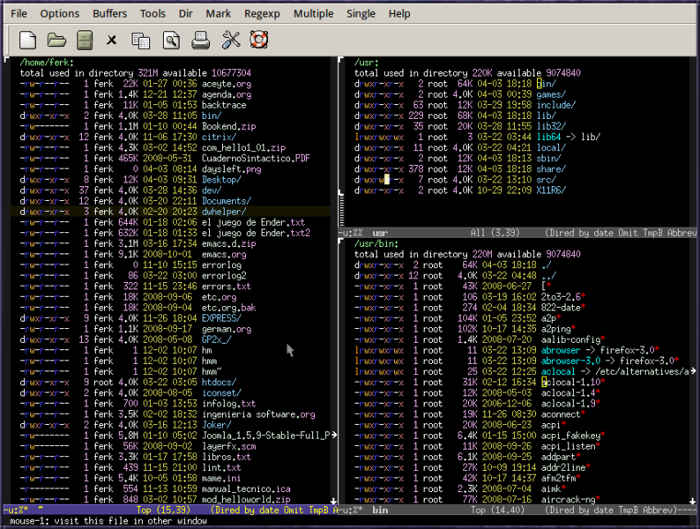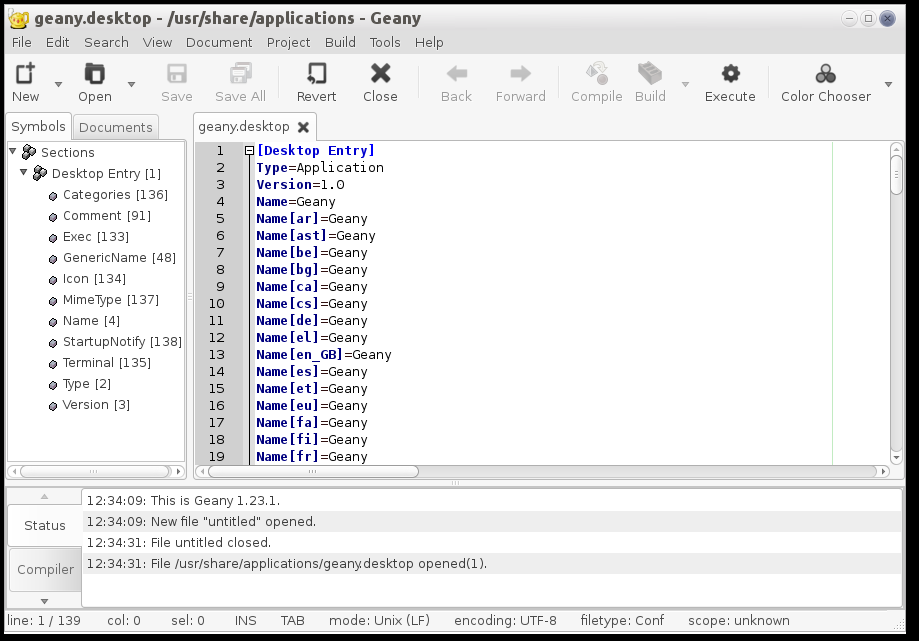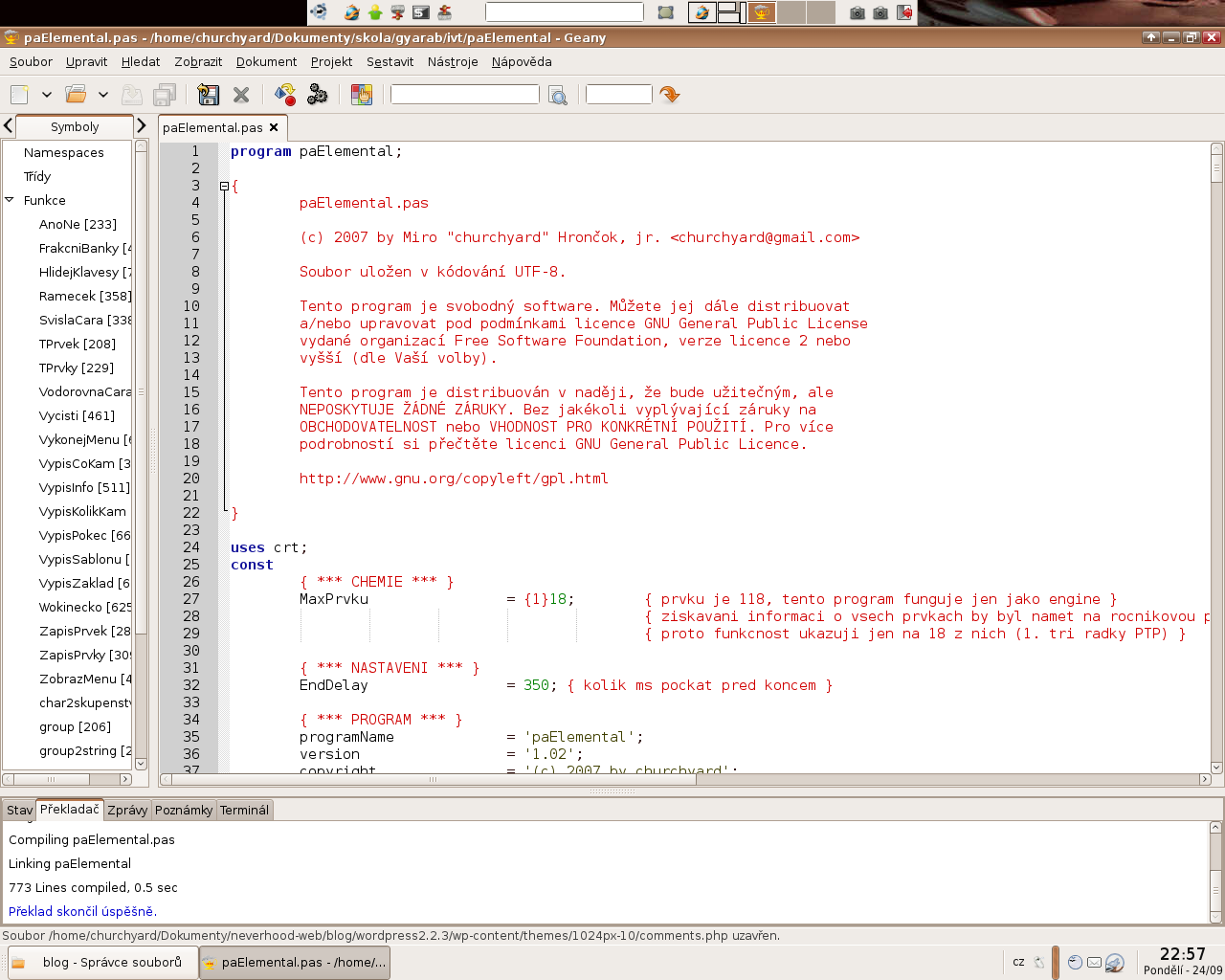
Linux geany 32 bit#
Ubuntu 16.10, 32 bit and Geany version 1.27 ().

Linux geany 64 Bit#
Ubuntu 19.10, 64 bit (but using desktop environment Cinnamon instead of GNOME) and Geany version 1.35. On Ubuntu 16.04, the output from apt-cache search geany includes "geany-plugin-debugger – debugger plugin for Geany". Anjuta DevStudio itself is an IDE you can use to develop applications based on C, JavaScript, Python, Vala and of course C++. You need a Ubuntu version prior to 18.04. Linux users who use a GNOME-based distro must be love Anjuta DevStudio as it is developed especially for GNOME although it can also run seamlessly on other desktop environment. It is a very flexible, powerful and cross-platform text editor, especially for Linux users. So, let’s say hello to Geany, one of the best Linux code editors and a great IDE. The web site list of plugins for Geany has " Debugger", but it is not available through the package system in Ubuntu 19.10. Geany has brought a new solution for those who are in search of a good IDE an integrated development environment. The "Debugger" Geany plugin is not available in later versions of Ubuntu

Linux geany install#
Install it (based on the exact name from above, "geany-plugin-numberedbookmarks"): sudo apt-get install geany-plugin-numberedbookmarksĪfter this, the plugin "Numbered Bookmarks" is now listed in Plugin Manager. Geany-plugin-numberedbookmarks - numbered bookmarks plugin for Geany List available Geany plugins (available through the package system): apt-cache search geany | grep geany-pluginįilter for plugins related to bookmarks (as to why not debuggers, see below): apt-cache search geany | grep geany-plugin | grep -i book I wanted to add this as a comment but don't have the rep enough, sorry. For those who did not find it under View Change Color Scheme check under View Editor Change Color Scheme. Despite the name, you can't actually install plugins from Plugin Manager, only enable already-installed ones. Geany is a free and open-source lightweight GUI text editor using Scintilla and GTK, including basic IDE features. You can invert the scheme: Edit > Preferences > Editor > Display > Invert highlighter color scheme. Simply search for “geany” and install with a click.The Geany plugin manager only lists already-installed plugins.
Linux geany software#
Geany is available in the software center and package archives of many Linux ditros. It supports many popular programming languages like JAVA, Python, Go, JavaScript, C/C++, Lisp, Pascal, Fortran, and so many more. Both as in freedom (you can share modify and share it) and as in “free beer” you can download and install for free. It is commonly found in the software repository of different Linux distributions (distros).


You can continue from whee you stopped working after a close. Geany saves and refreshes sessions automatically. It can used for simple text editing and, and as a result of a large number of supported files can be used for any programming purpose as a capable IDE. Only necessary plugins are packaged with it, even though more plugins can be downloaded for extended functionalities. This is very important as it does not require heavy system resources (like memory). Geany (IPA:dini JEE-NEE) is a free and open-source lightweight GUI text editor using Scintilla and GTK, including basic IDE features. Other reasons you should try geany include, but not limited to, the following So if you need a very light-weight IDE for most of your programming (especially languages where you need to compile the source code), I would advise you to go for Geany. Geany locates the compiler in the system automatically for you. One good reason I like using the Geany IDE is because of automatica compiler recognition once a compiler of a programming language is installed on a PC you don’t need any further configuration to start using the compiler to write programs. Geany is a cross-platform, feature-rich full-blown integrated development environment (IDE), that you can get on Linux.


 0 kommentar(er)
0 kommentar(er)
